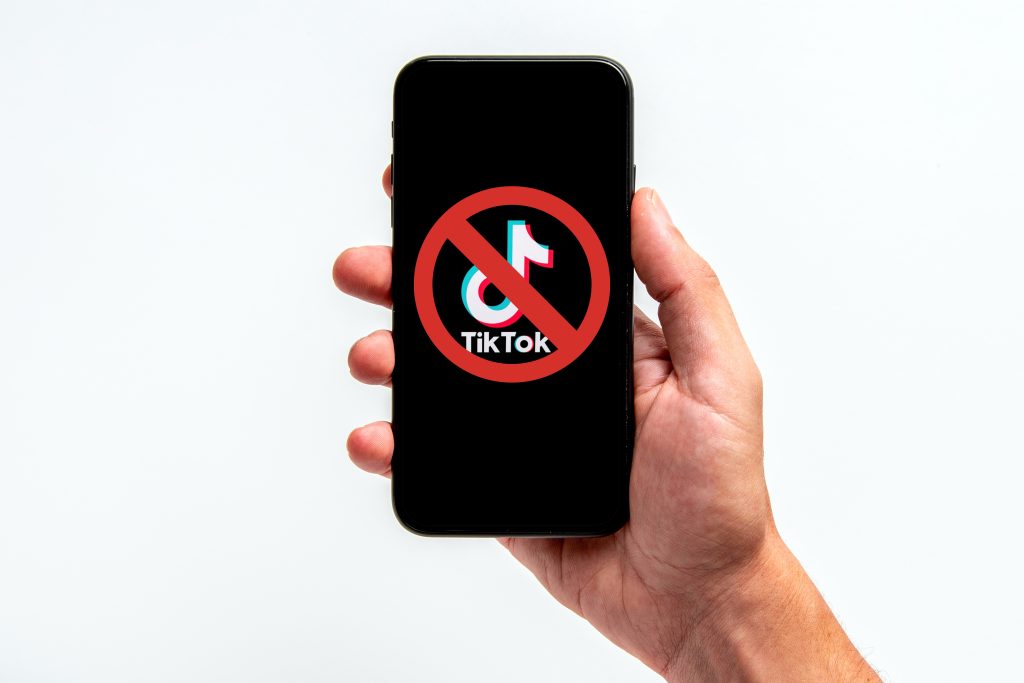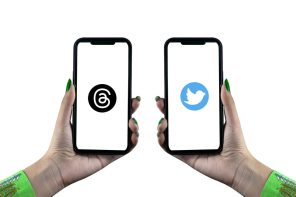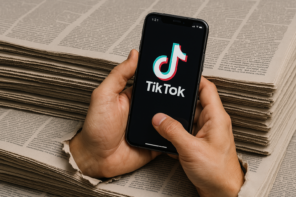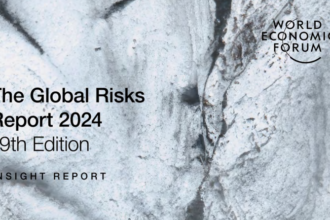
Thursday May 4, 2023
Is it time to switch off Tik Tok?
4 mins
TikTok’s rise to fame has been nothing short of remarkable. In just a few short years, the app has become one of the world’s most popular social media platforms, with over 1 billion monthly active users and over 2 billion downloads globally. Its unique format of short, engaging videos has captivated young audiences, making it a powerful tool for brands looking to connect with consumers in new and innovative ways. It has also opened up opportunities for user-generated content and influencer marketing.
TikTok’s success can be attributed to several factors. Its short-form video format, allowing users to create and share short videos, has proven immensely popular, particularly among younger audiences. The app’s algorithm, which uses artificial intelligence to recommend content based on user preferences, has also boosted the app, ensuring that users are constantly presented with relevant and engaging content. As a result, it’s become an ‘app favourite’ for Gen Z and millennial audiences, who are known for their willingness to embrace new technologies and digital experiences.
However, TikTok’s success has not come without controversy. The app has faced criticism over data privacy and security concerns, mainly due to its Chinese ownership. This has led to calls for greater transparency and accountability from the platform, and some are wondering if it’s time to switch off TikTok for good.
The Dark Side of Tik Tok
One of the most significant concerns is the impact of TikTok on mental health, particularly for young people. In a recent report, the non-profit Center for Countering Digital Hate (CCDH) found that it can take less than three minutes after signing up for a TikTok account to see content related to suicide and about five more minutes to find a community promoting eating disorder content. The report also found that Tik Tok content can increase anxiety, depression, and poor sleep quality among adolescents. The constant comparison to the seemingly perfect lives of influencers and the pressure to create and share content can also contribute to negative self-esteem and body image issues.
A viral challenge blamed for several deaths, the Blackout Challenge is one of the most harmful to ever emerge on Tik Tok. The trend grew in popularity in 2022 and proved tragic after children filmed themselves holding their breath until they fell unconscious due to a lack of oxygen. Other dangerous viral Tik Tok challenges include the ‘Dragon’s Breath’ challenge, the ‘Skull Breaker Challenge,’ and the ‘Benadryl challenge’, to name but a few.
A few weeks ago, The Information Commissioner’s Office (ICO) issued a £12,700,000 fine to TikTok Information Technologies UK Limited for several breaches of data protection law, including failing to use children’s personal data lawfully. This follows a $5.7 million fine imposed on the app by the US Federal Trade Commission in 2019 for violating children’s privacy laws.
The Crackdown on Tik Tok
One of the biggest concerns with TikTok is its ownership by Chinese tech company ByteDance, which has raised concerns about the app’s data privacy and security. Critics worry that the app could be used to collect sensitive user data and share it with the Chinese government. The Biden administration has demanded that TikTok’s Chinese owners divest their stakes in the app or face a possible ban in the United States. This decision follows the introduction of new legislation allowing the White House to ban foreign-based technologies if they are deemed a national security risk. Numerous countries have also raised concerns about the app and have either partially or completely banned its use.
India was the first country to ban TikTok and dozens of other apps by Chinese developers in June 2020, claiming they were potentially harmful to the country’s security and integrity. Pakistan has also banned TikTok at least four times, with the latest ban ending in November 2021, over what the government said was immoral and indecent content on the app. The Afghan government is also in talks to ban TikTok and the video game PUBG, with the Taliban claiming they were leading Afghan youths “astray.”
In Europe, Belgium has banned federal government employees from using TikTok on their work phones, while the European Commission and European Parliament have both banned the app from staff phones over cybersecurity concerns. In New Zealand, the app has been banned on devices with access to the parliamentary network amid cybersecurity concerns. The UK has also banned Tik Tok from all parliamentary devices.
The Way Forward
The crackdown on TikTok highlights the growing importance of responsible data management and privacy protection in the social media industry. Social media companies, governments, and other stakeholders must work together to ensure that social media remains safe and secure for people to connect and share content.
From a PR and communications standpoint, the challenge for TikTok will be to effectively address the concerns raised by governments and regulators regarding national security, privacy, and other issues and demonstrate that it is taking concrete steps to address these concerns and protect user data.
With the growing tensions between China and the West, PR and communications professionals in the West now have to horizon scan geopolitics to assess whether the platform is reputationally robust and secure enough to be used as a channel for brands as politics incredibly enters into the arena of marketing communications.
Curzon PR is a London-based PR firm working with clients globally. If you have any questions, please feel free to contact our Business Development Team bd@curzonpr.com







Follow us